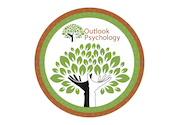
Most people experience the occasional upsetting and odd out-of-the blue thought, or double-check something they know they have already done, like going back to make sure the stove is off or the car is locked.
However, individuals with obsessive-compulsive disorder (OCD) have these types of experiences repeatedly and frequently, and find them so frustrating and upsetting, or so time consuming that they interfere with day-to-day life.
OCD is characterised by:
- recurring, persistent, and distressing thoughts, images, or impulses, known as obsessions
- the need to carry out certain repetitive behaviours, rituals, or mental acts, known as compulsions. Many people with OCD experience both obsessions and compulsions, whilst others have only one or the other.
Obsessions are not merely worries about everyday concerns, and compulsions are not simply habits. The symptoms of OCD are often upsetting or embarrassing to the individual, and can lead to significant avoidance of situations which trigger their OCD thoughts or behaviours.
The repeated behaviours or rituals are generally carried out to reduce anxiety or with the idea that it will prevent a feared situation, however the temporary relief provided by these behaviours and the individual’s reliance on them to manage anxiety is actually part of the OCD cycle. As the worrying thought returns, anxiety or distress increases, and the individual feels the urge to repeat the OCD behaviour to experience the same relief. This doesn’t provide a long term solution however and the cycle repeats itself.
If you are experiencing any of these symptoms, please call us today on 1300 00R UOK (1300 007 865) or contact us to book your initial appointment. Let the amazing team at Outloook Psychology Practice help you.
